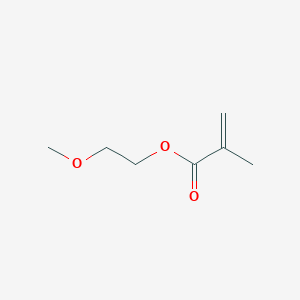-
Categories
-
Pharmaceutical Intermediates
-
Active Pharmaceutical Ingredients
-
Food Additives
- Industrial Coatings
- Agrochemicals
- Dyes and Pigments
- Surfactant
- Flavors and Fragrances
- Chemical Reagents
- Catalyst and Auxiliary
- Natural Products
- Inorganic Chemistry
-
Organic Chemistry
-
Biochemical Engineering
- Analytical Chemistry
- Cosmetic Ingredient
-
Pharmaceutical Intermediates
Promotion
ECHEMI Mall
Wholesale
Weekly Price
Exhibition
News
-
Trade Service
[ Hot Focus on Chemical Machinery and Equipment Network ] The resumed fifth session of the United Nations Environment Assembly (UNEA-5.
2) will be held in Nairobi, Kenya, and online from February 28 to March 2, 2022
.
Hosted by the United Nations Environment Programme, the United Nations Environment Assembly (UNEA) brings together representatives from the United Nations' 193 member states, business, civil society and other stakeholders to agree on policies to address the world's pressing environmental challenges
.
Chemical machinery and equipment network hotspots focus on chemical machinery and equipment2) will be held in Nairobi, Kenya, and online from February 28 to March 2, 2022
.
Hosted by the United Nations Environment Programme, the United Nations Environment Assembly (UNEA) brings together representatives from the United Nations' 193 member states, business, civil society and other stakeholders to agree on policies to address the world's pressing environmental challenges
.
The overarching theme of UNEA-5 is "Enhancing action on nature to achieve the Sustainable Development Goals"
.
This highlights the critical role nature plays in our lives and in social, economic and environmental sustainability
.
At the meeting, governments around the world will discuss ways to develop a global treaty to tackle plastic pollution
.
.
This highlights the critical role nature plays in our lives and in social, economic and environmental sustainability
.
At the meeting, governments around the world will discuss ways to develop a global treaty to tackle plastic pollution
.
The UN Environment Assembly in Kenya's capital could mandate an intergovernmental negotiating committee to broker an agreement that would require all countries to adopt national targets and plans to eliminate plastic spills, particularly to reduce plastic leakage into the ocean, and to recycle and manage it
.
.
Plastic waste in Manila Bay
The amount of plastic in the oceans is untold – there are as many as 51 trillion pieces of plastic in surface water alone
.
Ocean plastic pollution harms animals, which ingest it, and the risks to humans of consuming seafood contaminated with it remain unknown
.
.
Ocean plastic pollution harms animals, which ingest it, and the risks to humans of consuming seafood contaminated with it remain unknown
.
Most plastic entering the ocean comes from rivers: One report found that up to 95% of plastic comes from just 10 river systems, eight of which are in Asia
.
Much of this originates from developed countries, who have exported it to developing countries for recycling or disposal
.
.
Much of this originates from developed countries, who have exported it to developing countries for recycling or disposal
.
In addition to the massive piles of floating plastic, such as the Great Pacific Garbage Patch three times the size of France, scientists are also concerned about microplastics smaller than 5 millimeters, which can be found everywhere from the far-flung Antarctic to the deepest ocean trenches
.
.
Plastic pollution isn’t limited to water either, it’s found in every corner of the planet, from the Arctic to Mount Everest
.
Furthermore, plastic production is a major driver of climate change
.
If the entire plastic life cycle were a country, it would be the fifth largest emitter of greenhouse gases
.
.
Furthermore, plastic production is a major driver of climate change
.
If the entire plastic life cycle were a country, it would be the fifth largest emitter of greenhouse gases
.
While technological solutions to clean up plastic waste have proven successful and attempts to limit the use of single-use plastics are welcome, the challenge remains to limit the production of the material in the first place
.
This can only be achieved with a global agreement
.
.
This can only be achieved with a global agreement
.
At present, three prototypes of resolutions have been formed
Existing global treaties cover elements of the issue: the Basel Convention regulates trade in waste, including plastic; the International Maritime Organization, the IMO, deals with marine plastic litter on ships; and the Stockholm Convention protects humans from plastic waste .
hurt
.
However, no one represents a holistic tool for problem solving at the global level
.
plastic productshurt
.
However, no one represents a holistic tool for problem solving at the global level
.
The United Nations presented the idea of a global response to plastic pollution at its third Environment Assembly in 2017
.
It has established an open-ended ad hoc expert group on marine litter and microplastics to consider the form of a global agreement
.
Momentum has been building ahead of this month's talks, with 154 countries backing talks on a new global deal
.
It is worth noting that the United States, a producer of plastic waste, announced late last year that it would participate in the negotiations
.
.
It has established an open-ended ad hoc expert group on marine litter and microplastics to consider the form of a global agreement
.
Momentum has been building ahead of this month's talks, with 154 countries backing talks on a new global deal
.
It is worth noting that the United States, a producer of plastic waste, announced late last year that it would participate in the negotiations
.
In order to begin negotiations on a global treaty, a resolution defining its scope and mandate must first be adopted at this month's Environment Assembly
.
Three such resolutions have been proposed and will be discussed at this meeting
.
.
Three such resolutions have been proposed and will be discussed at this meeting
.
One of the resolutions, proposed by Rwanda and Peru and co-sponsored by about 50 countries including Norway, Chile, Pakistan and the European Union, is considered the most ambitious
.
It proposes an "open mandate" for the negotiating committee, meaning negotiators can work on a wide range of issues related to plastic pollution as discussions progress
.
It recommends a "full life cycle" approach to plastics, addressing plastic production and waste management
.
Its wording aims to address plastic pollution in any environment, not just the ocean
.
.
It proposes an "open mandate" for the negotiating committee, meaning negotiators can work on a wide range of issues related to plastic pollution as discussions progress
.
It recommends a "full life cycle" approach to plastics, addressing plastic production and waste management
.
Its wording aims to address plastic pollution in any environment, not just the ocean
.
The second resolution was proposed by Japan and supported by Antigua and Barbuda, Cambodia, Palau and Sri Lanka
.
The resolution specifically targets "plastic pollution of the ocean", focuses on the management of plastic waste (rather than production), and proposes a closed mandate, meaning negotiators can only address this aspect of plastic pollution as they work to reach a deal
.
.
The resolution specifically targets "plastic pollution of the ocean", focuses on the management of plastic waste (rather than production), and proposes a closed mandate, meaning negotiators can only address this aspect of plastic pollution as they work to reach a deal
.
The third resolution, India’s replacement resolution on single-use plastics, issued on January 31, unlike other proposals, India’s document focuses on a voluntary framework rather than the mandate to create a legally binding global agreement
.
.
Ahead of the resumed fifth session of the United Nations Environment Assembly (UNEA 5.
2) in February 2022, more than 70 international brands, including Coca-Cola and PepsiCo, are calling for a global deal to combat plastic pollution, including reducing plastic production, which is currently remains a key sector in the oil industry
.
2) in February 2022, more than 70 international brands, including Coca-Cola and PepsiCo, are calling for a global deal to combat plastic pollution, including reducing plastic production, which is currently remains a key sector in the oil industry
.
Original title: United Nations Environment Assembly: Establishing the first global treaty to tackle plastic pollution







